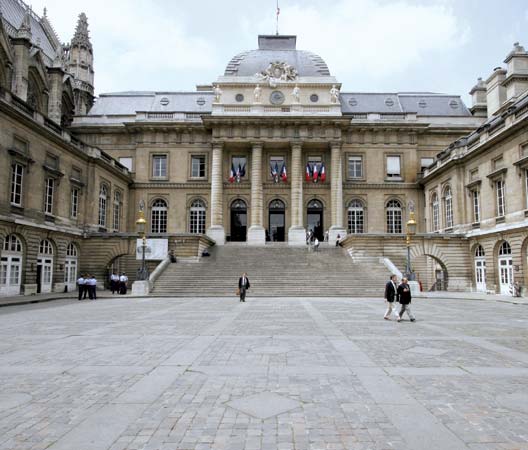Belgium. Cour de cassation
Enlarge text Shrink text- Pasicrisie belge, nov.-déc. 1996:t.p. (Cour de cassation)
- Arresten van het Hof van Verbreking, jaarg. 1961.
- Arresten van het Hof van Cassatie, 1999, d. 4.
The Court of Cassation (French: Cour de cassation [kuʁ də kasɑsjɔ̃] ) is the supreme court for civil and criminal cases in France. It is France's highest court. It is one of the country's four superior courts, along with the Council of State, the Constitutional Council and the Jurisdictional Disputes Tribunal. It primarily hears appeals against the decisions of courts of assizes and courts of appeal (appeals-in-cassation). The Court only reviews questions of law (but not questions of fact) and bears ultimate responsibility for a uniform interpretation and application of statutory law throughout France. It also filters out appeals challenging the constitutionality of statutes before forwarding them to the Counstitutional Council, reviews lower court verdicts on request of the European Court of Human Rights and hears several other types of cases. The Court is organized into three civil chambers, a commerce chamber, a labour chamber, a criminal chamber, a prosecutorial service and various other bodies. The Court usually rules in panels of three or five judges; the most significant cases are adjudicated by plenary sessions. The Court was established in 1790 as the Tribunal of Cassation during the French Revolution; its original purpose was to act as a court of error with revisory jurisdiction over lower provincial prerogative courts (parlements). However, much about the Court continues the earlier Paris Parlement. Several other countries have courts of cassation based on the French model. The Court is located in the Palace of Justice in the 1st arrondissement of Paris.
Read more on Wikipedia >
 Governmenal body
Governmenal body




